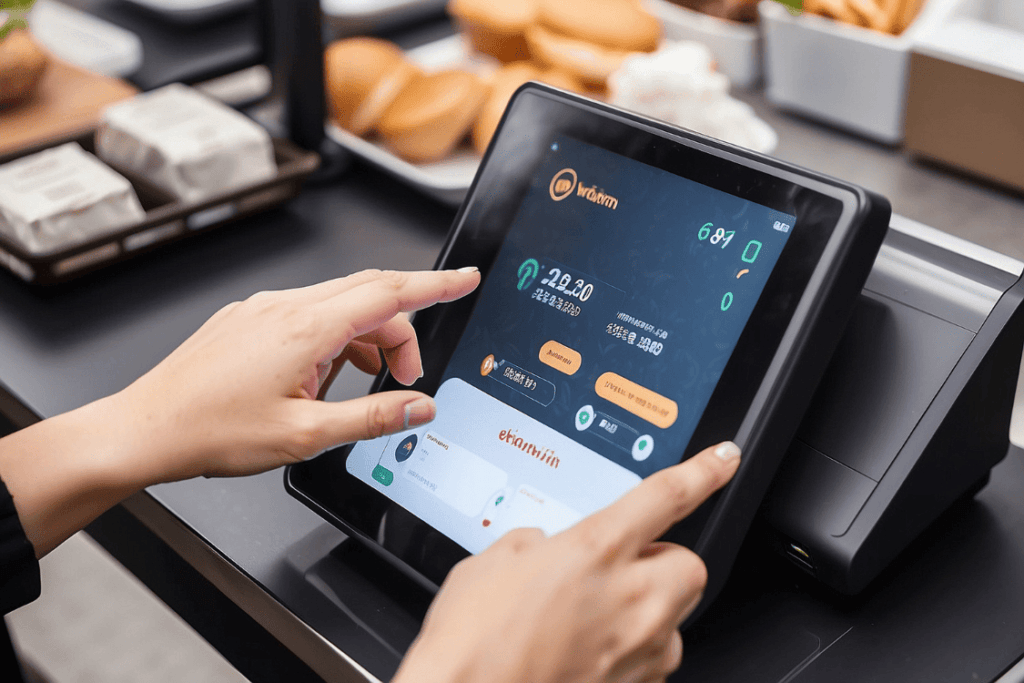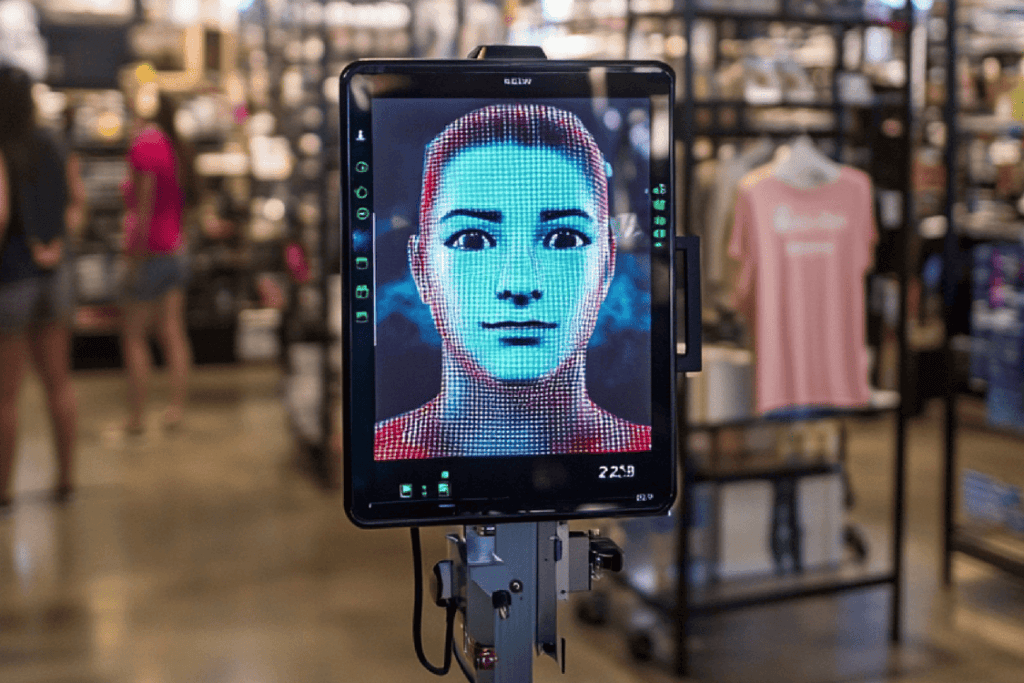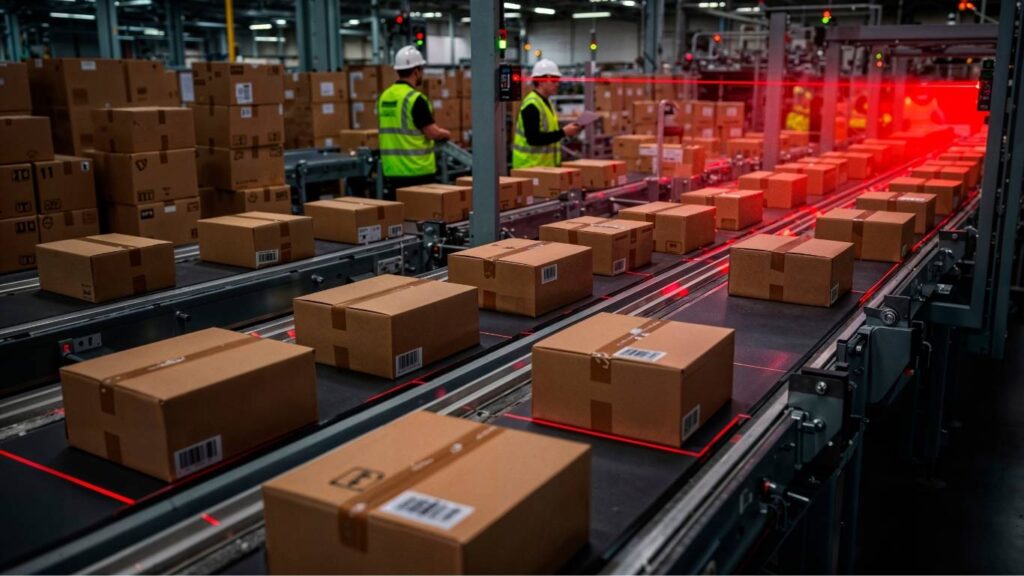A POS system is an essential tool for retail businesses, streamlining transactions and reducing customer wait times at checkout. However, AI-powered POS systems go beyond traditional payment processing. With machine learning capabilities, AI can enhance POS systems by over 50%, optimizing efficiency and data utilization, providing valuable insights into customer behavior, inventory management, and security.
1. Understanding Traditional POS vs. AI POS Systems
A POS system serves as the digital equivalent of a cash register, facilitating transactions via cash, credit, or debit cards. While traditional POS systems are either physical devices or web-based checkout points (web-based POS), Mobile POS, etc., AI-powered POS solutions bring significant advancements.
Modern POS software also assists with inventory management, purchase (procurement) tracking, pricing accuracy tracking, and data collection for marketing. AI and Machine learning (ML) integration further improves transaction speed, enhances data collection, and optimizes operation. A 2021 study found that 15% of U.S. businesses had implemented AI-powered POS systems, with 40% planning adoption within the next year. In a report by Mordor Intelligence, the size of AI in the retail market is estimated at $13.07 billion in 2025 and is expected to reach $53.74 billion by 2030.
POS vendors are among the leading AI technology adopters, making AI-enhanced POS systems an increasingly beneficial choice for businesses.
2. Components of POS Systems: Hardware & Software
POS systems consist of both hardware and software components.
2.1. POS Software
POS software can be broadly divided into server-based and cloud-based, integrable in multiple devices (POS PC, web-based POS in tablet, Mobile POS, etc.). Each type has its advantages and disadvantages, companies can choose the best option based on their requirements and demand.
Server-Based POS Software
Advantages | Disadvantages |
|
|
Cloud-Based POS Software
| Advantages | Disadvantages |
|
|
2.2. POS Hardware
Businesses can purchase or lease POS hardware depending on their budget and long-term goals. The key question is whether to opt for a server-based system or a cloud-based iPad POS system. iPad POS solutions save counter space and offer mobility. Additionally, depending on business operational needs, retailers may invest in barcode scanners, self-checkout kiosks, cash drawers, and credit card readers.

3. Benefits of AI POS Systems
3.1. Data Analytics
Retail businesses generate vast amounts of transactional data, and the POS records multiple data from types of products, product quantities to purchase times, price and customer preferences, etc. Leveraging AI-driven machine learning models in the POS system, retailers can analyze these datasets to enhance customer satisfaction and predict future demand, optimizing inventory management.
3.2. Customer Behavior and Preferences Analysis
AI-powered POS systems can analyze customer behavior to identify sales trends, optimize dynamic pricing (suggest optimal prices for products), and suggest promotions based on real-time demand. By integrating POS data with AI-driven management, businesses can track real-time insights from cameras and sensors to get customer behavior, and real-time store data, refining upselling strategies. In other words, AI POS can “draw” detailed customer personas, enabling personalized recommendations, loyalty programs, and targeted promotions—boosting engagement, retention, and sales.
3.3. Fraud Prevention and Strengthen Security
AI enhances the POS system’s security by detecting unusual transaction patterns and alerting businesses to potential fraud. Advanced fraud detection algorithms minimize risks by analyzing transaction histories, ensuring a secured payment system, and assisting in speeding up payments and checkouts while protecting data stored in the POS software. In the long run, it can reduce operational costs for businesses and increase trust and recognition.
3.4. Automated Inventory Management
AI-driven POS systems automate stock management, ensuring optimal inventory levels and reducing overstocking or stockouts. By analyzing past sales data and market trends, AI predicts future demand, allowing businesses to make data-driven restocking decisions.
>> Read more: A Cloud-based Procurement Management System: 6X Lower Costs, Smarter Retail Inventory Control
3.5. Layout Optimization
As mentioned earlier, AI can analyze vast amounts of data. In addition to supporting marketing, sales, and inventory management, AI-driven data can also be leveraged to optimize store layouts. By analyzing customer attributes such as gender, age, and purchase time, businesses can determine the most effective shelf arrangement and store layout.
For example, AI may identify purchasing products where office workers tend to buy small snacks, such as melon bread, in the morning but prefer beer or other alcoholic beverages in the evening to unwind after work. Based on this insight, stores can strategically place pastries near the checkout area in the morning while positioning beverage display cases in highly visible locations near the entrance. This not only enhances customer satisfaction but also streamlines the checkout process, improving overall efficiency.
4. Technologies Expected to Enhance POS Systems

- Facial Recognition Technology: A facial recognition system can identify customers’ faces, allowing businesses to collect insights such as gender, age, and purchase history. By integrating AI-powered facial recognition with a POS system, businesses can enhance customer experiences through personalized promotional programs and services.
- Predictive Analytics: An AI POS system integrated with predictive analytics can analyze collected data (e.g., customer demographics) to forecast future demand. This helps businesses optimize inventory management, ensuring efficient stocking and restocking.
- IoT Sensors: A smart POS system equipped with IoT sensors can track customer behavior and while tracking the warehouse’s in-stock conditions in real-time. This enables businesses to address peak-hour challenges, such as long queues, ensuring customers receive products more efficiently.
Partner with Experts to Elevate Your Retail with AI
AI POS systems are revolutionizing the retail industry by improving efficiency, security, and customer engagement. Businesses adopting AI in their POS solutions gain a competitive edge through enhanced data analytics, automated inventory management, and personalized customer experiences. Whether through a pc POS, a web-based POS, or an online POS system for retail, AI integration ensures streamlined operations and data-driven decision-making. As technology advances, AI-driven POS solutions will become an industry standard, helping retailers maximize efficiency and profitability.
As one of the Top 3 Core Technologies of VTI, AI is at the heart of our IT Solutions. With extensive know-how experience in retail industry, we provide cutting-edge, tailored solutions that drive business growth.
Partner with us to transform your retail ecosystem with DXcellence!
![[FREE EBOOK] Strategic Vietnam IT Outsourcing: Optimizing Cost and Workforce Efficiency](https://vti.com.vn/wp-content/uploads/2023/08/cover-mockup_ebook-it-outsourcing-20230331111004-ynxdn-1.png)





